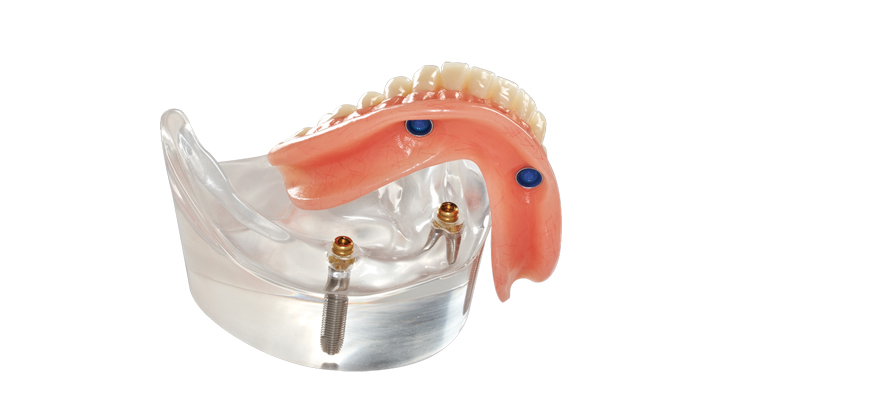Overdenture is any removable dental prosthesis that covers and rests on one or more remaining natural teeth, the roots of natural teeth, and/or dental implants.It is one of the most practical measures used in preventive dentistry. Overdentures can be either tooth supported (conventional / immediate) or implant supported. It is found to help in the preservation of alveolar bone and delay the process of complete edentulism.
An overdenture is a denture, the base of which covers one or more teeth, prepared roots or implants.
An overdenture is usually used for elderly patients that have lost some teeth but not all, rendering them suitable for a set of full dentures.The overdenture is not rigid in the mouth; it is removable.
An advantage of overdentures compared to full dentures is that the roots left in the maxilla (upper jaw) help preserve bone of the upper jaw, preventing bone resorption. Another advantage is that the sensory aspect is improved. The nerves in the roots are still present therefore sensation is improved greatly.
The gums around the teeth must be relatively healthy for an overdenture to not cause any further problems.
A maxillary overdenture may be supported by implants. Even though there is no solid evidence to prove how many implants would be ideal to stabilise an overdenture, the most common number of implants used to stabilise a maxillary denture is 4.
For a mandibular overdenture, support was better given by 2 implants than it was when only one implant was present.The patient could also chew much better and was overall more pleased with the overdenture.
Book An Appointment → Ask Questions →

